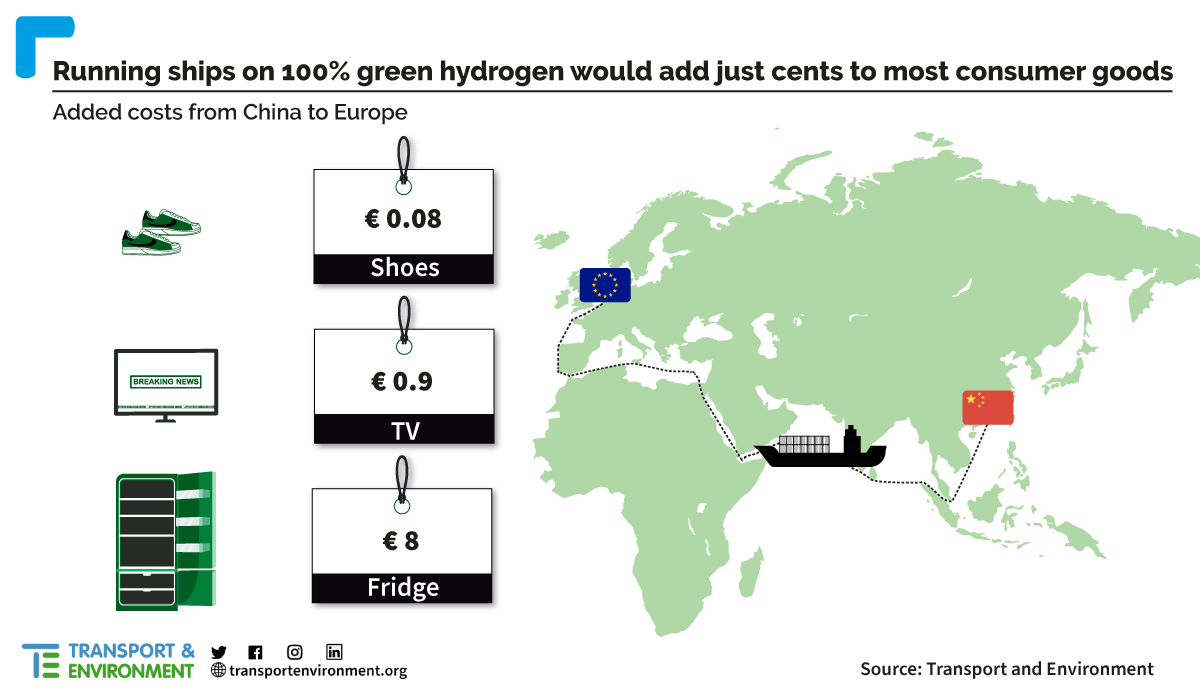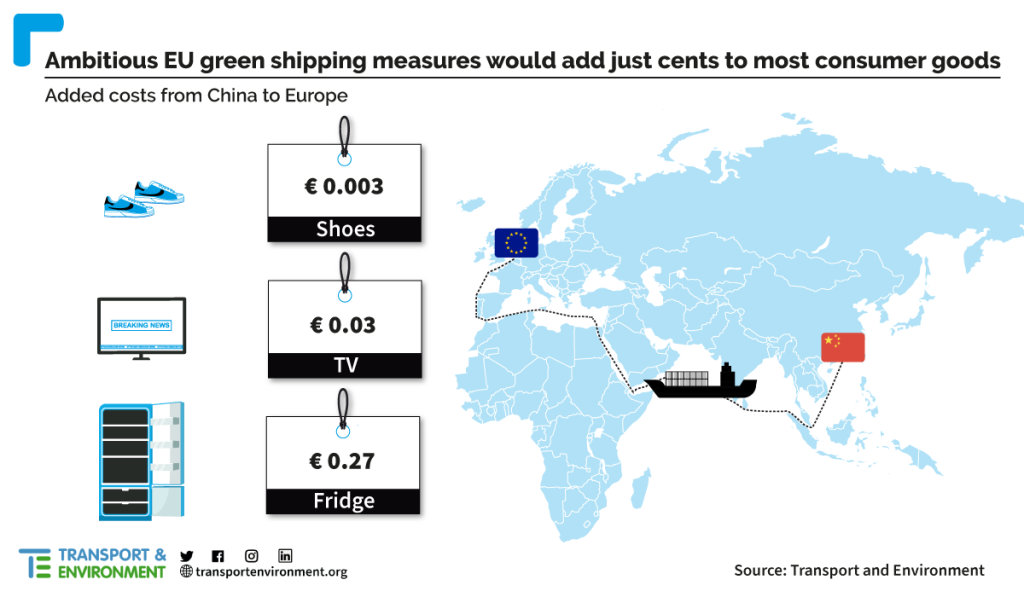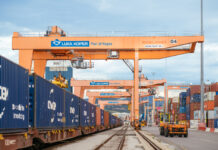
Ships that use renewable hydrogen as fuel will lead to almost zero increases in final consumer prices, according to a new study.
For example, on the cost of decarbonising European shipping, running all-green hydrogen-based ships (e-fuels) would add less than US$0.10 to the price of a pair of trainers and up to US$8,4 for a refrigerator.
The analysis of shipments from Shenzhen in China to Europe disproves the shipping industry’s argument that ambitious “green” measures will be prohibitively expensive and will cause huge price increases for consumers.

“Green shipping would add less than 10 cents to a pair of Nikes. This is a tiny price to pay for cleaning up one of the dirtiest industries on earth. In a year where shipping companies are making bigger profits than Facebook, Google, Amazon, and Netflix combined, it is right to question whether shipping companies are doing enough,” said Faig Abbasov, shipping director at Transport & Environment (T&E).
The shipping industry is responsible for over 80% of world trade. However, the industry has not been released from carbon and remains one of the heaviest polluting industries in the world, according to T&E.
One of the main arguments against the ambitious green measures is that they would raise prices for consumers.
As the study shows, even in the most extreme case of a ship running on 100% green fuels, prices would not increase significantly.
According to T&E, European policymakers, who are currently voting on two key proposals to clean up shipping, should be encouraged by this.
The first is a historic extension of the carbon market to shipping, and the second is a law on marine fuels to be passed in July.
Using the current EU proposal to charge carbon pollution from ships, combined with the proposal to impose small amounts of green e-fuel by 2030, T&E analysed the impact this would have on container transport prices and consumer goods coming from China.
As it turns out, in the worst case, freight companies would face increased shipping costs from 1% to 1.7%. However, on an itemised basis, the price of consumer products would barely budge.

“A decade ago, the only hope of decarbonising shipping was halting global trade itself. Now we have the technology, but what is lacking is a market signal for green hydrogen producers. As a world leader in shipping, the EU should set an ambitious green e-fuel mandate that guarantees hydrogen fuel suppliers a market. Green shipping is possible. It is a question of political will,” Abbasov concluded.




